Communities affected by February's major earthquake in Papua New Guinea's Highlands region are getting little help from government, according to a local Catholic Bishop.
The Bishop of Mendi in Southern Highlands province, Donald Lippert, said locals had shown great resilience in getting by, having weathered the magnitude 7.5 quake in neighbouring Hela, as well as subsequent aftershocks and landslides.
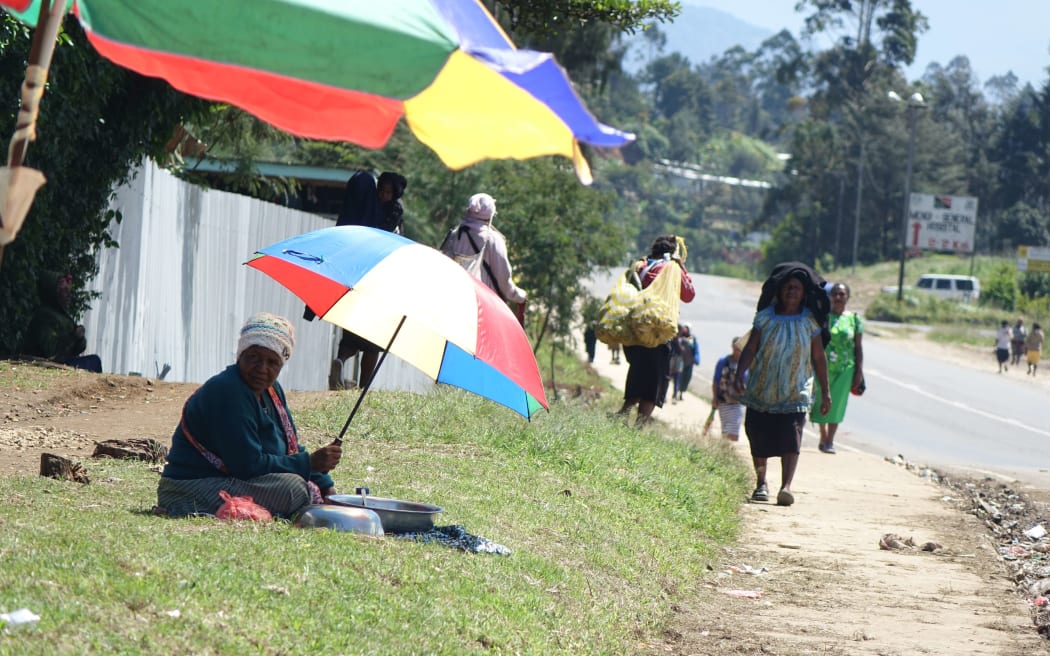
Mendi people are getting on with life after a major earthquake disaster and political unrest. Photo: RNZ Pacific / Johnny Blades
In a region recently dealt other setbacks by political and tribal unrest, the bishop said assistance to restore basic services was sorely needed but people were getting on with life as best they could.
Many communities, who had been forced to move away from their villages in fear or need for basic supplies, had gradually returned home by now.
"Some other areas that were more greatly affected are thankfully less populated, like in the Mt Bosavi area," Bishop Lippert said.
"There would still be some displaced people, but I think over the last few months, people have been working to get back to their home places."
PNG's emergency controller, Bill Hamblin, said the estimated death toll from the quake was 180-200, although he qualified that it was difficult to pin down a number given that some villages were wiped out by landslides.
His emergency response team, in co-ordination with international partner agencies, have been able to get re-starter kits to many affected communities and prevent disease breakouts.
But the disaster caused widespread and lasting destruction to infrastructure for regional education and health services.
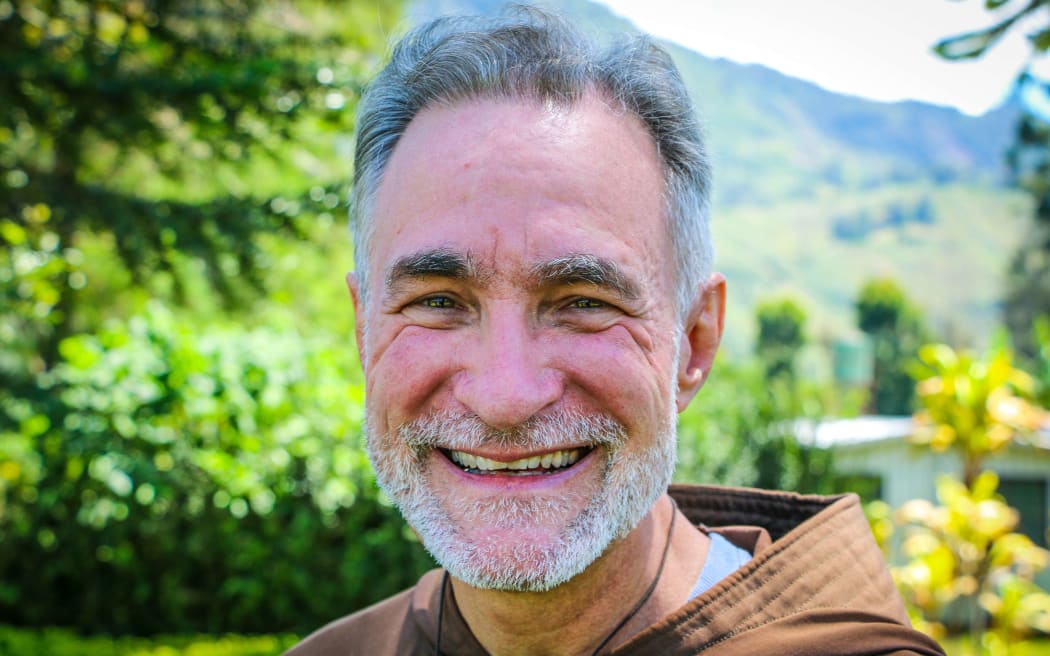
The Bishop of Mendi, Donald Lippert. Photo: RNZ Pacific/ Koroi Hawkins
Speaking on his front lawn on a pristine afternoon in Mendi valley, Bishop Lippert said international partners such as the UN children's agency UNICEF were helping to meet people's basic needs in his province after the quake.
He said that in the aftermath of the earthquake, the diocese was able to leverage almost US$120,000 from two Catholic agencies in Germany (Missio & Misereor) that was used to provide direct relief assistance to people who were affected by the quake.
The funds were used for food and water, seedlings, piglets, poultry projects, garden tools, as well as repairs for repairing family homes.
He said the church had been proactive in responding in the best way it could, repairing and rebuilding infrastructure including housing for diocese staff, teachers and health workers.
"We'll continue to do what it is ours to do, and what we are able to do, and call upon anybody of goodwill to be able to come and help us with that," he said,
"I would hope that the government would be responsive to the destruction of classrooms and staff houses and medical facilities."
Government had done little to help, apart from providing some communities with food in the early phase following the major quake, according to the bishop.
After a recent trip to PNG's capital, Port Moresby, Bishop Lippert admitted he was frustrated at where the government's priorities evidently lay.
"I was in Moresby recently and I saw them spending millions and millions of kina building perfectly good roads for this APEC meeting that's coming up, when not one toea has been given to the diocese for example, and other churches, to help rebuild schools, churches, healthcare centres.
"There are many teachers who are no longer coming to Mendi High School because their houses or water tanks were destroyed in the quake," he said.
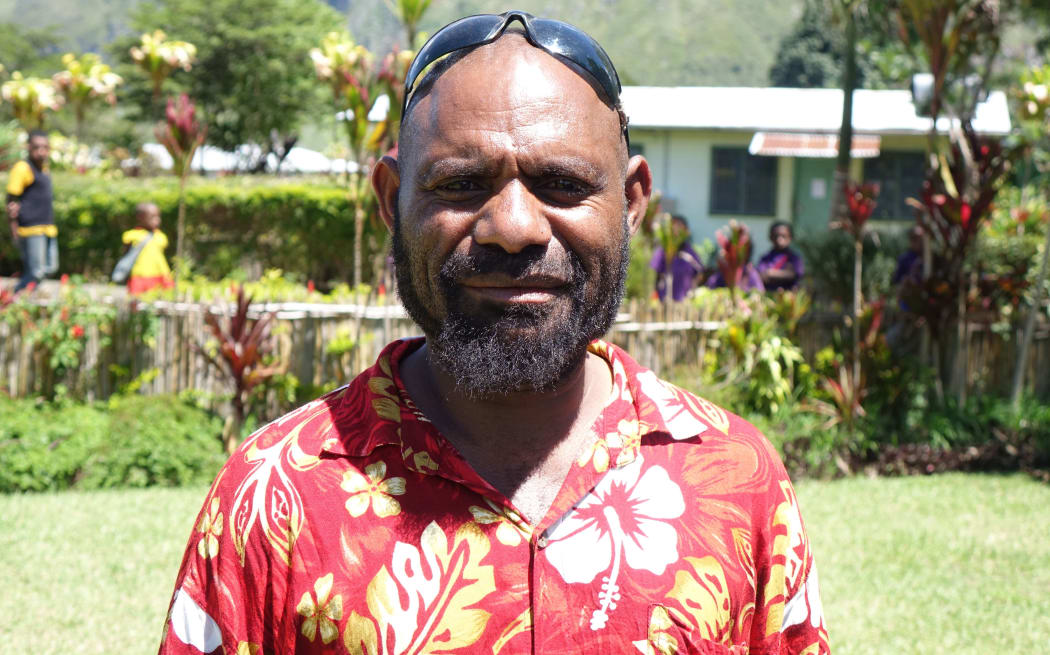
Mendi teacher Joseph Noah. Photo: RNZ Pacific / Johnny Blades
Political unrest
Despite being the capital of Southern Highlands, Mendi is in danger of becoming a ghost town.
Local people could withstand the trauma and loss associated with the earthquakes. But a rampage in mid-June by a mob angry over a perceived rigged election result had dealt Mendi a blow it may not fully recover from.
In a rampage which grabbed international headlines, the mob destroyed a commercial airplane belonging to PNG's national carrier at Mendi airport, burnt down the local courthouses and set fire to the provincial governor's residence as well as other buildings.
In response, the government, not for the first time, declared a state of emergency in Southern Highlands province. Election-related unrest and violence has a long track record in the province. The targets of June's rampage were symbols of the state, showing how perceptions of unfairness about the country's democratic process are deep-rooted.
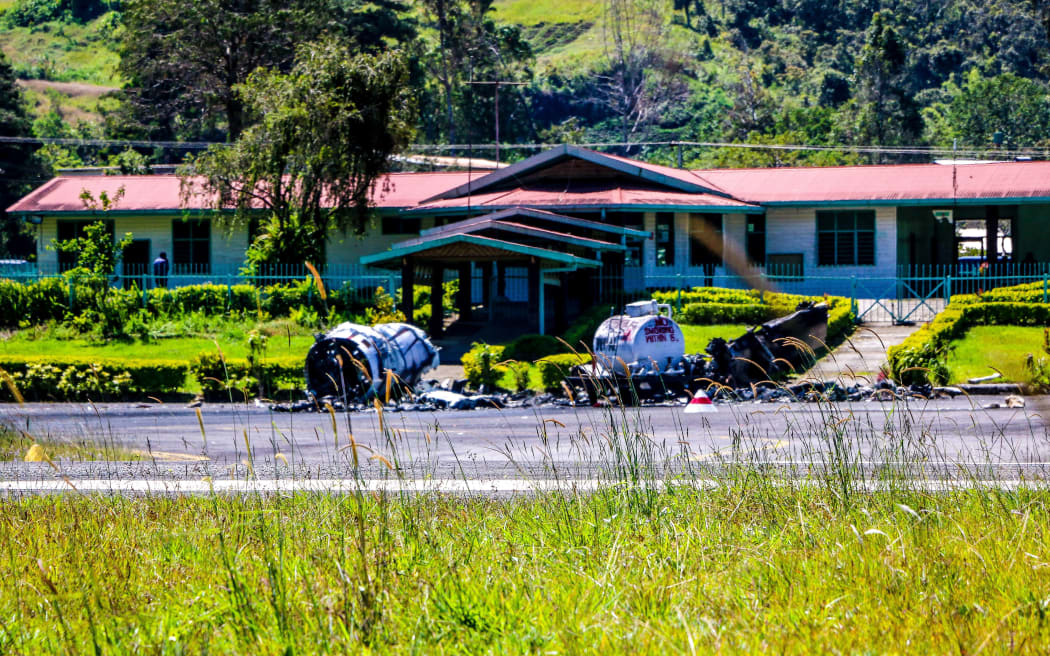
The remains of an Air Niugini airplane, destroyed by an angry mob at Mendi airport in June, have now been moved off the runway. Photo: RNZ Pacific/ Koroi Hawkins
PNG police issued a sombre press statement yesterday announcing that the burnt Dash 8 airplane had finally been dismantled and removed from the airport tarmac.
Thirteen suspects arrested in relation to the rampage remain in remand in Mt Hagen and more arrests could follow. But lasting damage has been done.
With the provincial courthouses to be established in a new town and few airlines willing to fly back to Mendi, the town is becoming less practical as a centre for businesses and ordinary residents. There is speculation that the provincial capital could be moved to neighbouring Ialibu-Pangia, the district of prime minister Peter O'Neill.
People in Mendi are fed up with political violence and are starting to move to other parts.
A local teacher, Joseph Noah, said Southern Highlands, like other parts of PNG, was blessed with beautiful mountains and rivers and clean air but that local people's mindsets were a constant drag.
"The biggest problem with people is the mentality," he said. "When a small problem happens, they go for fights. They've got guns and spears and all these things. That's the biggest problem, the mindset of the people."
Looking around the valley, one could only agree with Noah that the beauty of the Mendi valley made the violence that lurked under the surface in this town somehow preposterous.
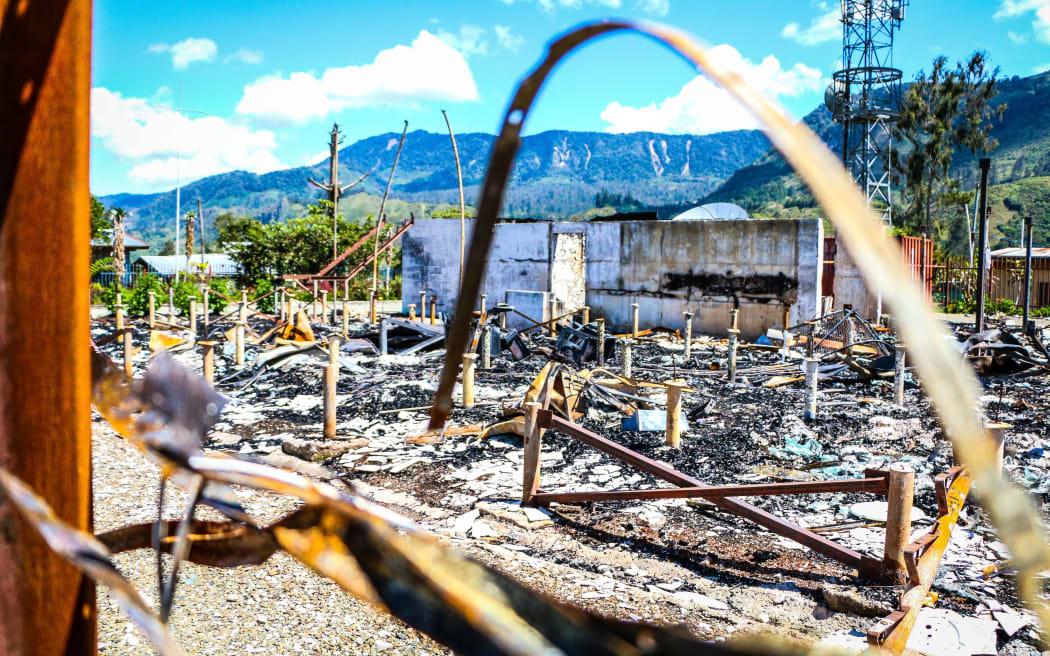
The remains of Mendi's courthouse. Photo: RNZ Pacific/ Koroi Hawkins
Meanwhile, the Southern Highlands Governor William Powi's controversial election win was finally upheld by a court in Port Moresby this week.
Speaking at a press conference this week, with his trademark cross necklace on show, Mr Powi spoke of the need for rebuilding and reconciliation in Mendi and the wider province. He urged people to respect the rule of law.
Yet considering the depth of misgivings among Southern Highlanders over the legitimacy of his election win, the governor himself could be part of the problem.

